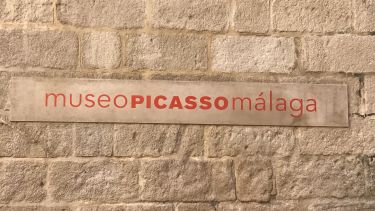Spanish, Catalan, Portuguese and Latin American Studies
Spanish and Latin American Studies at Sheffield has a long-established profile of internationally outstanding research, covering Spain, Catalonia, Latin America and the Portuguese-speaking world.

Spanish, Catalan, Portuguese and Latin American Studies
The research expertise of staff is exceptionally wide-ranging - the portfolio of specialisms spans politics and society, literature, film, art and photography, as well as language and linguistics. Research projects include: the Mexican drug wars, the body in Latin American visual culture, children’s magazines in Argentina, crime and fiction in Latin America, foreign imaginings of ‘latinity’, Benito Pérez Galdós and nineteenth-century Spain, intellectual and physical culture in early twentieth-century Catalonia and Spain, life-writing in the global Portuguese-speaking community, history of the Spanish and Portuguese languages, linguistic prejudice in Brazil. Many of our research projects involve sharing and developing collaborative research outside of the University and, to this aim, we work with key partners including schools, cinemas, festivals, galleries, museums, charities, media and international bodies to develop inclusive projects.
Literary Culture
Most academic staff in the School work on literature in some form, but from a wide range of disciplinary and interdisciplinary perspectives. With regard to Spain, there is a longstanding tradition of research on the nineteenth-century (see Rhian Davies and the Galdós editions project), as well as a focus on twentieth and twenty-first-century Spanish literature and culture, with a particular interest in the late 1920s and 1930s and the transition to democracy and post-transition period. Current research is centred around notions of convivencia and cosmopolitanism in the contexts of immigration and multiculturalism, discourses of cultural (historical) memory and Spanish ‘Orientalism’, as well as the interface between physical and intellectual culture, and modern Catalan narrative (see Louise Johnson). There is significant research strength in Latin American literature, especially on the novel (for example, Philip Swanson on the Boom, Post-Boom and crime fiction, as well as the related cultural studies approaches of Lauren Rea and Peter Watt). On the Portuguese-speaking world, current research centres around analysing how emigration has shaped literature, particularly the life writing works resulting from Portuguese emigration to the USA (see Ramos Villar).
Film and Visual Culture
A number of staff work on film in both Spain and Latin America usually in relation to themes such as identity politics, violence, migration, gender and sexuality. Philip Swanson also deals with Hollywood and Latin America and the Hispanic USA. Carmen Ramos Villar is interested in the relationship between images and text and their relationship to the performance of identity in Portuguese American life writing. Lauren Rea examines graphic culture in the Argentine children’s magazine Billiken. Rebecca Ogden researches how screen cultures reflect and shape reproductive rights and norms in contemporary Mexico, particularly through a lens of gender and race.
Politics and Society
The research of most colleagues intersects with politics and society. More specifically, Peter Watt has a major ongoing project on the Mexican drug wars and works more generally on human rights and US-Latin American relations. Lauren Rea leads a project funded by the British Academy on inequalities in access to education amongst Indigenous communities in Argentina. She is also the Co-director of the Great Latin American Women Project. This is a transmedia educational project developed with teachers and partners from the creative industries that seeks to foment gender equality amongst primary school children in Latin America. Rebecca Ogden’s recent projects have looked at the relationship between culture and reproductive health and the lived experience of parenthood in Latin America.
